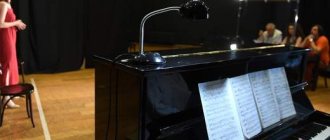What qualities should a defectologist have?
A defectologist is, first of all, a person who has received the appropriate education. The teacher must be able to diagnose existing deviations in children and look for ways to compensate for them, as well as conduct a certain course of classes aimed at the development of a problem child. There should be no age barrier between the child and the specialist. The latter must be able to gain the trust of the younger generation and become a friend to the child.
Among the personal qualities that a teacher-defectologist should have are the following:
- High level of intelligence. It is a necessity when mastering the profession of a defectologist. The teacher must have a competent and clear speech, he must have an excellent memory, and be able to correctly organize and structure classes.
- Intuitive abilities. Intuition is necessary to identify the technique that is suitable for a particular case.
- Observation and attentiveness. These two qualities will help to establish contact with the child, determine the specifics of his behavior and give a logical explanation for this.
- Communication skills. The specialist must be able to find a common language with children and be sociable with them, always be able to get the child to talk and provoke a two-way dialogue.
- Emotional steadfastness and patience. A strong nervous system is the key to the effectiveness and efficiency of a speech pathologist’s work with children with physical or mental disabilities. You need to understand that working as a defectologist is difficult work.
- Responsiveness. A defectologist is the first person who should come to the aid of those in need; he should not be indifferent to other people’s problems.
- Tact. The specialist must show maximum politeness and caution when communicating with special children and their parents.
Defectological specialties
The science of defectology includes several main areas:
- deaf pedagogy – teaching children with both obvious and minor deviations in the functioning of the hearing aid;
- oligophrenopedagogy – teaching the younger generation with mental disabilities;
- Typhlopedagogy – teaching children whose visual apparatus is impaired;
- Speech therapy is the training of children whose developmental indications are within normal limits, but there are speech disorders identified in pronunciation.
Severe multiple developmental disorders
The work of a teacher-defectologist is especially important when teaching children with severe multiple developmental disorders (SMDD). They often look unusual, behave inappropriately, and sometimes aggressively. We have to wait quite a long time for the results of their training and education.
The difficulty of the work is that the disorders and developmental characteristics of such children are so individual that it is not always possible to use the experience of colleagues. In order to get, “feel” the result, you have to combine various methods and techniques in your work, as well as invent your own.
In the recent past, some of these children were considered unteachable and were not accepted into school. The erroneous idea of learning disability is still widespread today.
The profession of a defectologist: goals and objectives
The goals that the teacher-defectologist sets for himself:
- Create a desire to learn through motivation.
- To compensate for the lack of general knowledge, to replenish the development of the speech apparatus, to teach literacy, reading, modeling, and playing.
Focusing on goals, a specialist working with special children solves the following tasks:
- Conducts corrective work regarding existing deviations in the development of students.
- Examines children to identify the structure and severity of their inherent defects.
- Unites students with identical psychophysical conditions into groups.
- Conducts classes (in a group or individually) that are aimed at correcting developmental disorders and restoring functional characteristics. Classes with problem children are based on the use of certain methods and techniques. The choice of one or another methodological program depends on the specifics of the existing deviations in students.
- Conducts consultations and conversations with parents of children who are undergoing rehabilitation.
In addition, a pediatric defectologist must systematically improve his professional qualifications.
Rights
A teacher-defectologist has the right:
3.1. All social guarantees provided for by the legislation of the Russian Federation, including:
- for reduced working hours;
— for additional professional education in the profile of teaching activity at least once every three years;
— for the annual basic extended paid leave, the duration of which is determined by the Government of the Russian Federation;
- for a long vacation for a period of up to one year at least every ten years of continuous teaching work;
— for early assignment of an old-age labor pension;
— for the provision of residential premises out of turn under a social tenancy agreement (if the employee is registered as needing residential premises);
— for the provision of residential premises in a specialized housing stock;
— to provide compensation for expenses for living quarters, heating and lighting [for those living and working in rural settlements, workers’ settlements (urban-type settlements)];
- to pay additional expenses for medical, social and professional rehabilitation in cases of health damage due to an industrial accident and occupational disease.
3.2. Get acquainted with draft management decisions relating to its activities.
3.3. On issues within his competence, submit proposals for the management's consideration to improve the organization's activities and work methods, as well as options for eliminating existing shortcomings in the organization's activities.
3.4. Receive from structural units and specialists information and documents necessary to perform his job duties.
3.5. Require the creation of conditions for the performance of professional duties, including the provision of the necessary equipment, inventory, a workplace that complies with sanitary and hygienic rules and regulations, etc.
3.6. Improve your professional qualifications.
3.7. [Other rights provided for by the Labor legislation of the Russian Federation].
Functions of a teacher-defectologist
- Conducts a detailed examination of the child, based on which he diagnoses his learning abilities. If developmental deviations are identified, work is organized aimed at maximizing the replenishment and restoration of developmental deficiencies.
- Conducts classes aimed at developing basic mental processes (perception, attention, memory, thought processes, etc.).
- Develops children's communication abilities.
- Develops a culminating activity for children of a certain age category. Thus, to compensate for the development of preschool children, the defectologist in kindergarten focuses on play activities, for schoolchildren - on reading, writing, etc.
Lag, not retardation
A student of the second correctional class of type 7 (ZPR) did not know how to read, write, count, got tired quickly, was lethargic and indifferent to almost everything, and experienced difficulties in communication.
Previously, children with mental retardation were considered mentally retarded. But even now, many teachers who do not have special pedagogical education find it difficult to distinguish mental retardation from retardation and developmental delays.
This child’s developmental problems had a cause not of an organic, but of a neuropsychological nature. In other words, the brain is functional, but some parts of it are slowly maturing.
I worked with my child twice a week. Among several areas of correctional work, I would like to mention neuropsychological exercises aimed at developing interhemispheric interaction. Children like them. Neural connections between the right and left hemispheres can be stimulated by drawing with both hands at the same time. Another simple and fun ear-nose exercise: with your right hand, take the tip of your nose, and with your left hand, take the lobe of your right ear. Then at the same time we change hands: the right hand takes the left earlobe, and the left hand takes the tip of the nose. We repeat the procedure several times. Try it, it's not as simple as it might seem at first glance.
I also gave recommendations to the class teacher, physical education teacher and music teacher on ways to support the child during the lesson that are appropriate for him. In particular, such a child needs to be carefully instructed: what other children grasp on the fly may not be clear to him without additional explanation.
It is extremely important to contact the student with this form of developmental disability more often with questions in class. Usually teachers tend to ignore such children because they are still unable to give the correct answer. This is a wrong strategy: the point is not that the child will not be able to answer at the moment, but that the teacher’s questions stimulate brain activity, due to which the maturation of neurons and connections between them is accelerated.
Nick Vujicic
I also gave recommendations to parents for studying at home. It is important for parents not to “spare” the child and involve them in household chores as much as possible: washing, cleaning, cooking. Famous Australian writer and speaker Nick Vujicic was born with tetra-amelia syndrome, that is, without arms and legs. But as a child, his parents tasked him with, for example, vacuuming the house. He clamped the handle of the vacuum cleaner between his head and shoulder and coped with this task quite well. This “ruthless” approach to children with disabilities allows them to maximize their potential.
Also among the general recommendations for parents, it is worth noting the development of spatial concepts: closer, further, in front, behind, in front of, behind, left, right, left, left, right, above, below, above, below, etc. This can be done casually: “Take the mug to your right and place it in front of the plate”, “Get the salt from the bottom shelf”, etc.
It is important that the parents of this child sought medical help and completed the entire course of treatment prescribed by the neurologist. Very often, parents are afraid or too lazy to consult a doctor. Without medical assistance, the effectiveness of the correction process is greatly reduced.
As a result of the coordinated work of all participants in the educational process, tremendous progress has occurred in the development of the child. In the fourth grade, the student’s level of social concepts and mental actions corresponded to the age norm. Primary school program material has been mastered in full.
The work of a defectologist: organizational principles
To diagnose developmental disorders, their correction and recovery, an integrated approach is used, which is based on the principle of unity of diagnosis and correction. Diagnostic work is an integral part of a comprehensive study of the baby by a specialist. The environment during the examination should be supportive, friendly, without extraneous noise and third parties, the dialogue should be in a calm tone.
Analysis of developmental disorders is carried out using an etiopathogenetic approach. Each special child has a damaged central nervous system; the nature of such lesions is different, which leads to heterogeneous disorders in mental and physical development. Therefore, classes with a defectologist are differentiated. For each individual student or preschooler, a list of priority areas in correctional work is compiled.
When drawing up a lesson plan, you need to take into account the age categories and individual characteristics of children. The task that the specialist sets for the child must be extremely clear to him.
If a child needs help from two or more specialists at the same time, interdisciplinary interaction between doctors and teachers takes place.
A teacher-defectologist carries out dynamic observation of each problematic little person, based on the results of which conclusions can be drawn regarding the effectiveness of corrective work using certain methodological techniques.
In addition, a correlative analysis of the state of the formed educational knowledge, mental and physical development of the baby is systematically carried out.
Article:
In connection with the transition to new Standards and a qualitatively different paradigm of the educational process, the content of the professional activity of a specialist in an educational institution working with children with disabilities - a teacher-defectologist - is also undergoing changes.
The standard takes into account the educational needs of children with disabilities; it assumes the creation of special conditions in an educational institution for their learning and development, ensuring the correction and overcoming (complete or partial) of disorders in the child’s development.
The activities of a teacher-defectologist at school are aimed at solving the problems of teaching and raising children whose difficulties are persistent and require prolonged observation and specialized assistance at different age stages (including situations where the child received long-term specialized assistance at an early age and preschool period).
The recipients of help from a speech pathologist are children with disabilities. The category of children with disabilities (CHD) currently includes children whose health condition prevents them from mastering educational programs of general education outside of special conditions of education and upbringing, i.e. These are disabled children or other children under the age of 18 who are not recognized as disabled children in the established order, but have temporary or permanent deviations in physical and (or) mental development and need to create special conditions for education and upbringing. Children with disabilities may have physical and (or) mental development disorders of different nature and severity, ranging from temporary and easily remediable difficulties to permanent deviations that require an individual education program adapted to their capabilities or the use of special educational programs.
Thus, we are talking about a wide range of students, some of whom have a developmental problem that can be solved by one specialist, for example, a speech therapist, while others require the help of a number of specialists to solve it, with special learning conditions and prolonged timing of correctional work. The main criterion for classifying a child into the group of children with disabilities is the presence of developmental deficiency(s), which determines the child’s special educational needs. The special educational needs characteristic of children with disabilities will differ in children of different categories, “since they are determined by the specifics of mental development disorders, which determine the special logic of constructing the educational process,” which should be reflected in the structure and content of education (N.N. Malofeev , E.L. Goncharova, O.S. Nikolskaya, O.I. Kukushkina).
Currently, a number of educational institutions are creating special conditions at their base that make it possible to provide variable forms of education to children with disabilities in accordance with their characteristics and the public’s request for educational services. Parents (legal representatives) are given the right to choose an educational institution available at their place of residence and the form of education. Inclusive practices and integrated education are becoming widespread, providing an opportunity for the successful appropriation of cultural experience by each child, taking into account his age characteristics, internal resources, health status and individual capabilities.
Integration processes involve a variety of variable forms of inclusion of children with disabilities among their peers.
In general education schools, the following types and forms of integration of children with disabilities are provided, identified on the basis of existing developments in scientific, theoretical and practical terms (L.M. Shipitsyna, N.N. Malofeev, N.D. Shmatko, E.A. Ekzhanova, etc.).
In appearance it is educational (pedagogical) and social integration.
Social integration presupposes the social adaptation of a child with disabilities into the general system of social relations and interactions, primarily within the framework of the educational environment into which he is integrated. Pedagogical (educational) integration is the formation in children with disabilities of the ability to master educational material determined by the general education program, that is, the general curriculum.
Based on modern scientific and methodological developments of the IKP RAO (N.N. Malofeev, N.D. Shmatko N.D., 2008, etc.) and the innovative experience of integration educational institutions, the following variable forms of integrated education of students within a comprehensive school should be highlighted. The forms presented below are determined in accordance with the general level of readiness of the child for socio-educational integration: permanent, combined, partial, temporary.
Full integration - this form of integration is used for children who, in a compensatory preschool educational institution or other specialized conditions (special groups in a combined preschool educational institution, variable forms of preschool education, attending correctional classes in primary care centers) have reached the level of psychophysical development of the age norm. In this form, children with disabilities are taught in general education classes on a general basis and, if necessary, receive assistance from specialists.
Partial integration - this form of integration is used for children experiencing persistent learning difficulties and receiving education in a special (correctional) class or compensatory education class. With this form of integration, students are included in a single educational space with normally developing schoolchildren; they are involved in all school-wide educational and training activities on an equal basis with students in general education classes. This form is also used for children in individual education, who can attend separate lessons in the class together with the main group of students.
Temporary integration - this form of integration is used for children who are home-schooled, in which students with disabilities have the opportunity to socially communicate with healthy peers (participation in extracurricular educational activities, in general school activities).
Combined integration - this form of integration is considered as the inclusion of a child with disabilities in a general education class, providing him with qualified assistance from specialists and creating specialized learning conditions in accordance with his characteristics. With this form of integration, the educational process of a child with disabilities is individualized in accordance with his special educational needs. Currently, this form of integration is more often considered as inclusion.
A special education teacher accompanies students with disabilities who are integrated into the school environment, who have special educational needs due to the severity of the main disorder and impede the favorable course of adaptation and learning processes. Practice shows that the specialist focuses on children with disabilities studying in a special class (partial integration) and those in a combined form of integration.
The goal of the specialist’s activity is to provide timely specialized assistance to students with disabilities who have learning difficulties, in their mastering the mandatory minimum content of education in a public school setting. The correctional pedagogical work of a defectologist, based on the principles of correctional pedagogy, is built taking into account the age and individual characteristics of students, in accordance with the structure and nature of the disorders, their impact on educational activities and the overall development of the child.
A teacher-defectologist in his work is based on a differentiated approach within the category of children with disabilities in order to determine individually oriented methods of correctional work. At the same time, the very content of the specialist’s correctional pedagogical work is built on the basis of an integrated approach, which, first of all, involves ensuring interaction between participants implementing the correctional program of work with the child. Thus, a teacher-defectologist, through recommendations and consultations, includes parents, teachers, and, if necessary, the administration in the process of correctional education. The interaction of the defectologist with other specialists is mandatory, which is carried out within the framework of the school psychological, medical and pedagogical consultation.
This approach also provides for the implementation of a set of measures to ensure the effective conduct of individual and group classes. A teacher-defectologist not only conducts correctional classes, but also provides holistic correctional pedagogical (defectological) support in the form of observation of the education and upbringing of each student in need, which includes dynamic observation of the child’s development and assimilation of knowledge in accordance with the mandatory minimum content of education, advisory work with parents and teachers. Correctional pedagogical support is also necessary for those students in special (correctional) classes who do not need systematic lessons from a defectologist.
The content of the specialist’s correctional work depends on the population of children with disabilities, the specifics of their disorders and developmental characteristics. With children with visual impairments, the following main directions of correctional work are traditionally identified, implemented by a teacher-defectologist (typhlopedagogue): visual perception, social and everyday orientation, sensorimotor development, spatial orientation.
With children with hearing impairment, the following main areas of correctional work are traditionally identified, implemented by a teacher-defectologist (teacher of the deaf): auditory-speech development, development of pronunciation skills, development of communicative function, emotional and social development and the formation of life competence.
The main activity of the specialist in the stake is aimed at children with mental retardation (MDD), who continue to experience difficulties in mastering educational knowledge, abilities, skills and in special educational conditions, including in correctional classes. As a rule, these are children with mental retardation of cerebral-organic origin (according to the classification of K.S. Lebedinskaya), which is caused by organic damage to the central nervous system in the early stages of ontogenesis, which negatively affects the overall development of the child, his intellectual activity and is characterized by limited possibilities for compensating for the disorder .
According to scientific research, children with mental retardation of cerebral-organic origin (COG) are characterized by significant heterogeneity and polymorphism within the category itself. The existing partial disorders of the central nervous system are combined with the relative preservation of others, which determines individual differences and features of the structure of the disorder. To qualify the difficulties of students with mental retardation of the central nervous system, a detailed analysis of development is necessary, not only taking into account the identification of pathogenic factors, preserved and impaired functions, primary and secondary developmental disorders, but also determining their mutual influence in the overall picture of the child’s development. Therefore, children in this category always require comprehensive assistance with varying degrees of participation from specialists in various fields.
The content of the activity of a teacher-defectologist is implemented in the following areas of work, providing an integrated approach to its organization: diagnostic,
- correctional,
- analytical,
- advisory, educational and preventive,
- organizational and methodological,
- analytical (determines the interaction of specialists in work, and also allows you to adjust lesson programs in accordance with the achievements of students).
Each of the areas in the specialist’s work has its own characteristics that ensure the satisfaction of the special educational needs of the category of students in question.
Diagnostic direction.
The diagnostic work of a special teacher is an integral part of a comprehensive study of the child by school PMPK specialists. The results of the defectological examination are necessarily compared with psychological, medical, and pedagogical data and discussed at council meetings. The diagnostic line of work includes: primary defectological examination; systematic stage-by-stage observations of a specialist over the dynamics and correction of mental development; checking the compliance of the chosen program, methods and techniques of teaching with the real achievements and level of development of the child.
The main task of this direction is to predict possible learning difficulties at its initial stage, to determine the causes and mechanisms of educational problems that have already arisen. Therefore, in the examination of children with disabilities by a speech pathologist, two aspects are distinguished: psychological and pedagogical.
The psychological aspect is the basis for qualifying a child’s school difficulties and determining whether the level of current development corresponds to his educational achievements. It includes the study of the level of mental, speech and motor development of the student, the characteristics of gnosis and praxis, inter-analyzer interaction, spatio-temporal concepts, and the nature of the student’s voluntary activity.
The purpose of the pedagogical examination is to identify difficulties in the formation of knowledge, skills, and abilities, to determine the stage at which these difficulties arose, and the conditions for overcoming them. To do this, a study of the level of mental development of the child is carried out, analysis of written work (qualitative characteristics of errors), observation of students in educational frontal activities and, if necessary, additional study of the development of school skills and abilities.
The diagnostic activity of a specialist can solve various problems. In this regard, the following stand out:
Primary diagnosis of students with disabilities. Its goal is to determine the level of actual and “zone of proximal development” of the child, the causes and mechanisms of learning difficulties, and identify children in need of specialized help. The diagnostic study is carried out during September (tentative dates are September 1-15). Based on its results, the following occurs: the distribution of children into groups according to the leading disorder, the determination of optimal conditions for individual development, and the enrollment of students in individual or group classes. The teacher-defectologist draws up an examination protocol and a defectological presentation for the student.
Dynamic learning of students.
It is carried out with the aim of tracking the dynamics of the child’s development, determining the correspondence of the selected forms, techniques, and teaching methods to the student’s development level. In the process of dynamic study, the problem of differentiating similar conditions of developmental disorders and identifying children who are not subject to education in a comprehensive school, even in an integrated form of education, are also solved. Dynamic study is carried out at least twice a year (September – May). The results are discussed at a meeting of the school PMPk and are formalized in the form of a defectological presentation for the student. Dynamic learning also includes determining the development of educational skills and methods of educational work (abilities and skills of perceiving information, planning educational activities, self-control, etc.)
Staged diagnostics. This type of diagnosis is necessary to ascertain the effectiveness and determine the effectiveness of the corrective impact on the development of educational and cognitive activity of children attending classes with a speech pathologist. The results of the specialist’s stage-by-stage conclusions are reflected in the Child’s Dynamic Development Card.
Current diagnostics.
The diagnostics is aimed at examining students in mass school classes at the request of parents, teachers, and school council specialists. This stage has no time frame; the examination is carried out throughout the academic year as needed.
Corrective direction.
The correctional direction of work of a teacher-defectologist is a system of corrective influence on the educational and cognitive activity of a child with mental retardation in the dynamics of the educational process. Depending on the structure of the defect and the degree of its severity, the content of the correction work is determined.
The main form of organization of defectological work is group and individual classes. Children with a homogeneous disorder structure are enrolled in groups. The number of children in groups varies depending on the severity of the disorder (from 2 to 6 people). Group classes are held during school hours, taking into account the school's operating hours. Classes are correctional, developmental and subject-oriented. The frequency and duration of classes depends on the severity and nature of the disorder, and the total load on the child is determined taking into account the work of other specialists with him. Topics of group and individual lessons, as well as attendance records, are reflected in the standard class register.
The main areas of correctional and developmental work include:
- sensory and sensorimotor development;
- formation of spatio-temporal relations;
- mental development (motivational, operational and regulatory components; formation of age-appropriate general intellectual skills, development of visual and verbal forms of thinking);
- formation of universal educational actions, normalization of leading age activities;
- formation of diverse ideas about objects and phenomena of the surrounding reality, enrichment of vocabulary, development of coherent speech;
- readiness to perceive educational material;
- formation of skills and abilities necessary for mastering program material.
A special feature of conducting correctional classes is the use of special techniques and methods by the speech pathologist teacher to ensure the satisfaction of the special educational needs of children with mental retardation, providing students with dosed assistance, which allows for maximum individualization of the correctional process. An important result of the classes is the transfer of the skills and abilities developed during them into the child’s educational work, therefore, it is necessary to link the specialist’s correctional programs with the program educational material.
The main time in the correctional work of a teacher-defectologist is allocated to classes with children of primary school age. However, classes can also be conducted with students in grades 5–9 - with those schoolchildren who have already attended classes with a defectologist, but due to the persistence of the disorder (a pronounced form of mental retardation of cerebral-organic origin) need continued correctional work. Preference in correctional work is given to the formation of methods of mental activity and methods of educational work of students based on the material of various academic disciplines. We are talking about the formation of “broad” techniques that are used in the lesson regardless of the field of knowledge and are interdisciplinary in nature. These include techniques such as examining an object from different points of view, logical processing of text, highlighting the main meaning of the context, concise retelling, etc.
Analytical direction.
Analytical direction - involves analyzing the process of corrective influence on the development of a student and assessing its effectiveness, as well as analyzing and assessing the interaction of specialists.
The need for this area of activity of a teacher-defectologist is due to the need for an integrated approach to solving a child’s problems, which involves:
1) a systematic analysis of the personal and cognitive development of the child, which allows not only to identify individual manifestations of mental development disorders of the student, but also to determine the causes of the violation, to trace their relationship and mutual influence on each other;
2) creation of comprehensive individual correctional and developmental programs aimed at the interconnected development and correction of various aspects of the child’s personal and cognitive development;
3) providing specialized support for the training and education of students. Depending on the underlying developmental disorder, each child may be supervised by one or another specialist who ensures the interaction of those specialists whose help the child needs;
4) prevention of student overload - correctional work of specialists should be planned taking into account the total load on the student;
5) interaction of specialists within the school psychological, medical and pedagogical consultation.
Thus, this direction ensures interdisciplinary interaction between specialists, allows us to evaluate the effectiveness of correctional interventions and adjust correctional training programs in accordance with the child’s achievements. For this purpose, a comprehensive dynamic examination of children is carried out (September – May). The results are discussed at school PMP meetings. Based on the results of the consultation, the correctional work of the defectologist with students with disabilities is adjusted, and comprehensive recommendations are drawn up for parents and teachers.
Advisory, educational and preventive direction.
This direction involves providing assistance to teachers and parents of students in matters of raising and educating a child, preparing and involving parents in solving correctional and educational problems, as well as working on the prevention of secondary and tertiary developmental disorders.
The teacher-defectologist develops recommendations for parents and teachers in accordance with the age and individual-typical characteristics of children, the state of their somatic and mental health; At the request of parents and teachers, additional examinations of students are organized, individual consultations and thematic parent meetings are held, and speeches are held at methodological associations of teachers.
The recommendations developed by the specialist are specific and general in nature. Thus, for working with individual students, recommendations are drawn up that allow the teacher to take into account their individual characteristics in front-line work in the classroom. In other cases, the recommendations are general. Such recommendations should be preceded by a speech by the defectologist at a meeting or methodological association, in which he explains in more detail to parents or teachers the features of any developmental disorder.
Organizational and methodological direction.
This area of activity of a teacher-defectologist includes preparation for consultations, meetings of methodological associations, pedagogical councils, participation in these events, as well as preparation of documentation, organization of examination of individual students at the PMPK of the city, district for the removal of needy students to special (correctional) institutions.
When preparing a consultation, a special teacher draws up a defectological presentation for each student, which contains the main diagnostically significant characteristics of the child’s developmental characteristics for qualifying his disorder.
The correctional work of a teacher-defectologist is based on programs implemented in a specific educational institution, using correctional techniques for each area of work.
The work of a specialist with students in the context of the implementation of the Federal State Educational Standards of NEO OVZ and the Federal State Educational Standards of Educational Education (IN) should be built taking into account the principles and approaches that form the basis of the Federal State Educational Standard.
Due to the updated content of the work, some current documentation of the specialist is changed.
Recommended documentation for a speech-language pathologist includes:
1. Protocol for the initial examination of the student.
2. Register of students being examined.
3. Map of the dynamic development of the child:
3.1 Examination protocol.
3.2 Defectological representation of the student.
4. List of students enrolled in classes of a speech-language pathologist.
5. Class attendance log.
6. Work program for the correction course……. (long-term plan for working with the group (on the leading violation)).
7. Work program for individual work with a child.
8. Schedule of correctional classes approved by the head teacher.
11. Specialist’s work schedule.
12. Journal of consultations.
13. Planning work for the year.
14. Annual report.
Myths about the work of a defectologist
- Myth 1. For inexplicable reasons, people have the opinion that a defectologist specializes in working exclusively with children who have significant deviations in mental and physical functions. This is not true. He can help any child who has problems with academic performance. A defectologist is a multidisciplinary teacher who knows how to choose the right teaching method for a particular child.
- Myth 2. Classes with a specialist in the field of defectology will last forever. This is far from true, or rather, it is not entirely true. If a teacher works with a student who has problems with academic performance and does not have mental or physical disabilities, then such classes have a clearly established deadline. It comes when the teacher helps the child fill in the gaps in knowledge.
Speech therapist and defectologist: what are the main differences
The main differences between a defectologist and a speech therapist are as follows:
- The target audience. A defectologist works with special children who have certain deviations in mental and physical development, and a speech therapist works with absolutely developed children who have problems with speech and pronunciation.
- Purpose of the lesson. A defectologist in a school or kindergarten strives to help the child learn to express his thoughts, restores gaps in knowledge, and applies measures to correct mental development. A speech therapist works only on the development of the speech apparatus and speech correction.
- Restrictions on the age category of children. A defectology specialist can conduct classes with very young children (starting from 1 year), but there is no need to rush into classes with a speech therapist until the child is three years old. In addition, an adult can also consult a speech therapist.
- A defectologist is a wide-profile specialist, something that a speech therapist, whose field of activity is much smaller, cannot boast of.
Famous speech pathologists
A considerable number of children of preschool and school age need special education. Outstanding scientists of the Russian Federation have devoted their works to numerous studies concerning this problem. The golden fund of defectologists includes: V. M. Bekhterev (Russian neurologist, psychiatrist and psychologist, founder of a scientific school), A. N. Graborov (founder of the sensory culture education system), L. V. Zankov (domestic psychologist, defectologist and teacher, student of L. S. Vygosky), M. S. Pevzner (Russian scientist, psychiatrist, psychologist, defectologist and teacher), F. A. Rau, Zh. I. Shif, E. K. Gracheva (first Russian teacher-defectologist), V. P. Kashchenko (head of the first sanatorium-school for special children), I. V. Malyarevsky, L. S. Vygotsky (defectologist-experimentalist, defectology researcher), M. F. Gnezdilov (domestic oligophrenopedagogue, methodologist), G. E. Sukhareva (author of the evolutionary-biological concept of mental illness), G. M. Dulnev.
Thanks to the above-mentioned scientists, special education in Russia received not only approval, but also proper development.






